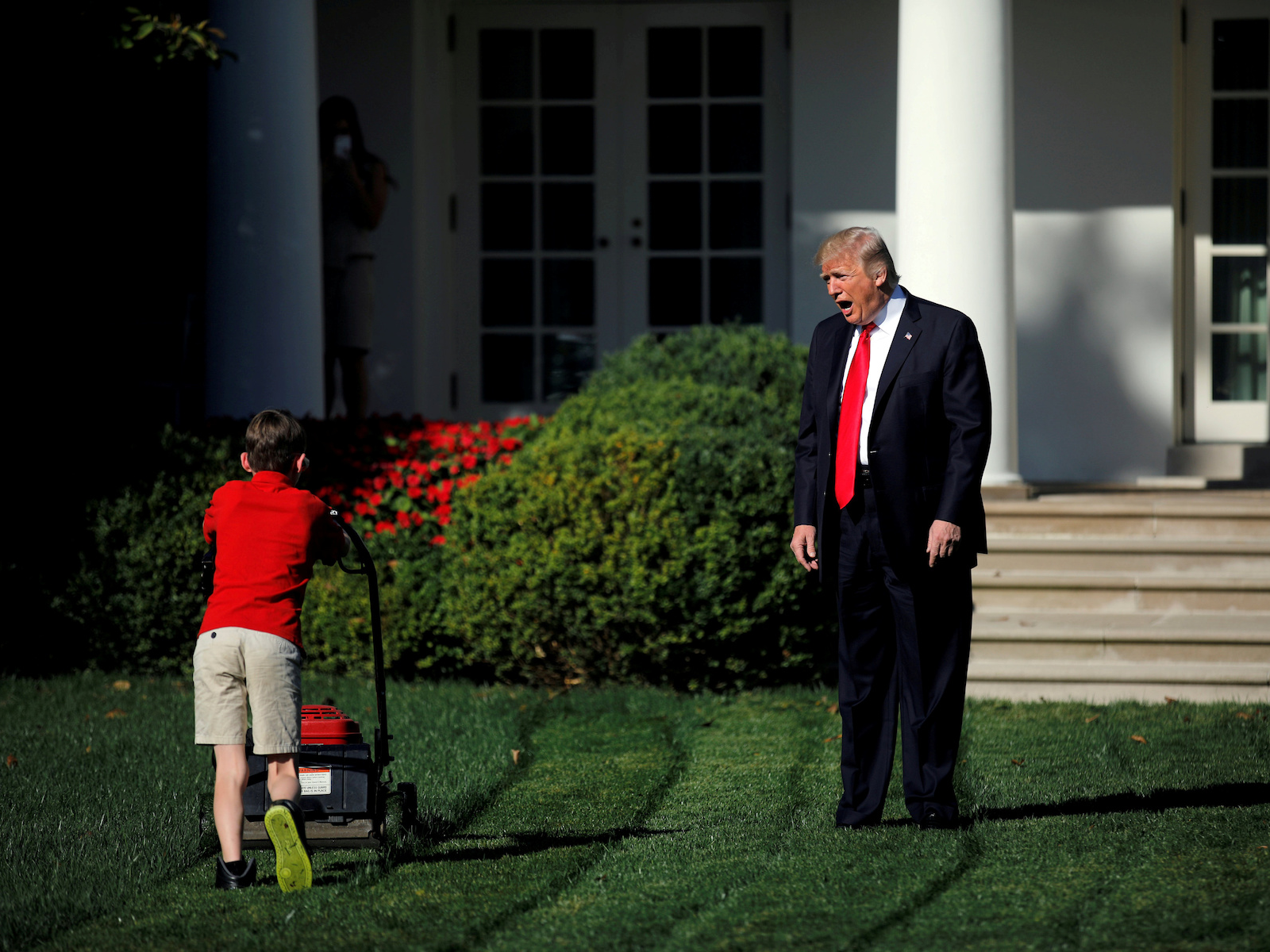- The President has become known for making outrageous demands to start a negotiation and then moderating them as is closes.
- At this point, this tactic won’t solve some of our looming trade issues as Trump has taken the more moderate paradigm off the table. The default now is hostility.
- To avoid a trade war we have to negotiate new deals. So far we don’t know if this administration can do that.
It works like this.
First President Trump makes some bold (or terrifying) policy goal – like leaving NAFTA, or withdrawing from Syria or Afghanistan. He tweets about it, he yells at his aids to get it done, starts throwing out nicknames etc.
Then everyone freaks out, and ultimately a very middle of the road solution is reached. Axios’ Jonathan Swan reported that people in Trump’s orbit and on the side of the table from him are starting to recognize that this is basically his only negotiating tactic.
I call it The Art of the Squeal.
The result, ultimately, is a bunch of really tense interactions and chaffed relationships for nothing because the Trump administration does nothing. It's just a bunch of noise. Most situations end up status quo antebellum. The whole process is embarrassing (remember when Trump threatened not to sign off on the budget?) but so far this has worked out finefor the United States of America.
The problem now is that, at least with trade, we may be entering uncharted territory - one where it's not okay for the administration to just do nothing.
Tuesday at 12:01 am
By Tuesday at 12:01 am the Trump administration has to decide whether or not to slap our allies (the EU, Canada, Australia, Brazil, and Argentina) with steel and aluminum tariffs. The tariffs were announced weeks ago but our allies were given an exemption until May 1.
In that time we were all supposed to come together and work out a deal - and by we I mean our allies the Commerce Department helmed by Wilbur Ross. Up to the time of this article's publication that effort has failed. Ross failed.
As a result, we may be in a trade war with our allies this week - a trade war they do not want but are prepared to fight by putting duties on American goods like whiskey and Harley Davidson motorbikes.
"This is basically a stupid process, the fact that we have to do this. But we have to do it," EU Commission President Jean-Claude Juncker said back in March. "We can also do stupid."
This is a scary situation in part because the Trump administration backed itself into a corner where The Art of the Squeal no longer serves. There is no status quo antebellum here. There is no Congress or Joint Chiefs to come up with a plan (Think: Syria) or cajole Trump into doing the right thing or lose face (Think: signing Russia sanctions into law). Trump has removed the default setting and replaced it with a default to trade hostility.
This was a situation where the Trump administration actually had to do something - to negotiate a new set of rules and come to a consensus. Trade is complicated, and even the strongest man has to give a little. This is not a smash-and-grab job, which is what The Art of the Squeal is intended for (Bing bang bong!).
This is a job that requires delicate, experienced hands. Where do you see those in this White House?
Never go full 'stupid'
In this case, part of the squeal was using the looming threat of tariffs to try to negotiate other deals for US goods. Instead of handling that issue delicately, the Commerce Department tacked a bunch more grievances onto its steel and aluminum deal, which couldn't have helped negotiators trust the US delegates. Trade, unfortunately for our purposes, is built on trust.
So it didn't work. Part of that could be general incompetence on Ross' part. It could also be that the ratcheting up of tensions only served to make our allies stop thinking and embrace the stupidity. Finally, it could be that the biggest flaw in The Art of the Squeal is that it's really good at destroying things (relationships, norms, Twitter feeds), but it really bad at creating things.
Down in Washington, the trade wonks are calling this new paradigm "deals-based trade" rather than "rules-based trade."
Ostensibly this is a good thing if you're good at doing trade deals. Unfortunately, it seems, we are not.
JUST IN: @WhiteHouse announces U.S. delegation going to China for trade talks: https://t.co/k7obfQksEq pic.twitter.com/83ivHthrQL
— FOX Business (@FoxBusiness) April 30, 2018
It's a bit worrisome to know that Ross & Co., who fumbled a deal with our allies, are now heading to China to figure out a way to stop a trade war with China, our most sophisticated frenemy. According to the WSJ, the White House has not sent an advance team sent to Beijing to prepare.
Meanwhile, the team itself divided. According to reports, Mnuchin has wanted to take a meeting with his counterpart since late March after speaking with China economic enjoy over the phone. He and Kudlow are more amenable to a solution to trade rhetoric. Trump added Lighthizer and Navarro to the mix to get a more hawkish view in the room.
None of this matters if they don't have a deal beyond Trump's rhetoric, which the Chinese have already said is a non-starter. Trump wants the country to stop manipulating its currency and make structural changes to its industrial economy that would stop the country's theft of US intellectual property and slow its technological development.
Xi just made a speech about the importance of technological advance that underscores the impossibility of coming to an agreement with the US if this is the only thing on the table. Unfortunately, according to reports, it is the only thing this delegation is bringing to the table.
Heavy on threats, light on solutions. Such is The Art of the Squeal.


